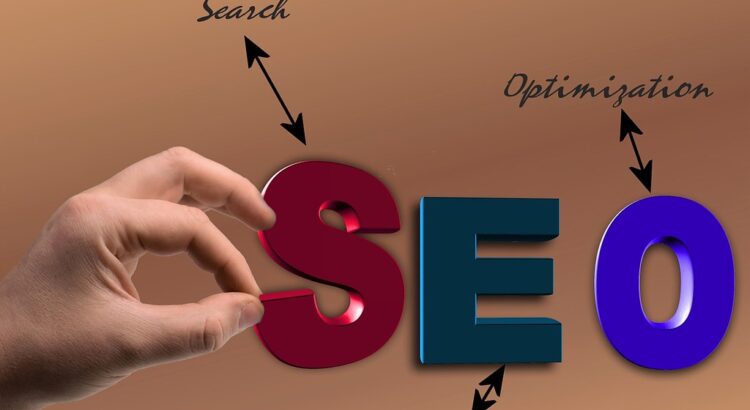Think of your website as a main five-course meal and the overall UX design as fine-dining cutlery. We’re not going to discuss the quality of the dish or palate’s satisfaction as it largely depends on the chef’s skills.
However, no matter how good the cooks are, the premium quality of your ingredients and seasoning, you need word of mouth to achieve five-star rankings, or in our case – local citations! Do your research and find the best SEO Companies worldwide to help your website rank higher in search, drive organic traffic and generate quality leads.
What are local citations, you might ask?
In simple terms, SEO-wise, a local citation refers to any mention of your business’ name, address and/or contact online. Although they are no longer a major ranking factor, they are the key element for local SEO.
You don’t have to be a digital marketing company to know how important the online presence of your business is, simply consider hiring a web design company in miami to make sure your company has a professional website with superior performance.
Your online contact information must be up-to-date, or you’ll deter prospective customers if they don’t know how to find you and get in touch with you. Plus, the lack of transparency will raise a ton of red flags and create justified suspicion.
Local citations may appear in various places: social media platforms, business directories, search engine results page (SERP) and more.
But how do they work?
How Can Local Citations Boost Your Local SEO?
As you may already know, every local SEO factor, while important, isn’t exactly… well, exact. It’s hard to tell how impactful one element is, but rankings do all the talking. Let’s just say that for whichever business you search for online, the first ten results are citation-rich.
Local citations help search engines verify your business’s presence, trustworthiness, legitimacy, or even existence. If the same information appears across many reliable websites, the Google algorithm works to your benefit.
As local citations are no longer as important as they used to be, they are still an essential SEO tactic. To put it simply, the more, the merrier.
Mind you, this doesn’t mean you need to build hundreds of citations, but truly meaningful ones that establish a foundational citation presence.
How Can Local Citations Help People Discover Your Business?
As mentioned above, you don’t need hundreds of citations to rank well, as citations alone are not enough to scale to number one.
However, they go beyond ranking as it’s important to make sure your company is listed on any other websites your customers may use to find you.
Although it is used the most often, not everyone searches for local businesses on Google. They often turn to specialized sites (like Yelp), so it’s advisable to get listed there, especially if they share your niche/industry.
More often than not, business directories dominate the SERPs for local business searches (hairdresser in Jersey, plumber near me, etc.). Try it. You’ll see that the top results are reserved for directories that list them.
Acquiring local citations is just a small part of a wider local SEO strategy, so you should employ localized link building, gathering online user feedback (reviews and ratings), content optimization and most importantly, keyword research to use location-specific SEO to the fullest.
What Is the Best Way to Build Local Citations?
In short – Quality over quantity. What does that mean? Acquiring lots of listings is good and dandy, but it’s better to have fewer high-authority citations than chasing after every possible citation opportunity. Inflation is never a good thing.
You should constantly be on the lookout for new/potential sources and keep track of where your industry competitors are being listed. Some of the more relevant citations can even come from blogs, PRs, or forums.
Remember, building local citations is not a set and forget process as you’ll need to keep them updated to reflect any potential change (more on that below)
How Should Local Citations Look?
There are a couple of proven methods to establish local citations as they can be formatted in several ways. A partial citation includes just some of your information (name, address, phone – NAP), but it is advisable to include the whole NAP for maximum benefit.
It doesn’t matter whether you format your NAP across one line or with breaks like you would format a letter or an email. Consistency is the key! It just needs to look exactly like it sits on your website and/or Google My Business
Avoid abbreviations unless you have done so everywhere else and keep the same format across all platforms.
If you went through rebranding or moved offices, you need to update your local citations for accuracy. If you don’t, any inaccuracy will mislead your customers, creating tangible damage to your reputation, SEO and most importantly, revenue.
What Types of Local Citations Are There?
Before building local citations, you need to understand the different types of citations you can get. Two variants to be exact, structured and unstructured.
Structured citations list the NAP of a business. Examples of these would be directory listings and official social media profiles. Each company’s information is displayed systematically, and the page is built on that data.
On the other hand, unstructured citations are contextual mentions of the respective business. They’re the ones that usually appear in blogs, forums and PRs.
Most business ventures that benefit from having structured and/or unstructured local citations follow one of all these steps (depending on what their goal is):
- Get listed with the major data aggregators: Data aggregators solve headaches by collecting information about businesses and distribute it to hundreds of other websites. In the USA, there currently three most important including Express Update, Neustar Localeze and Factual
- Submit to other core sites: In the USA, these are sites like Apple Maps, Facebook, Yelp, Yellow Pages, etc. Use them or your location equivalents for reaping maximum benefits.
- Submit to popular niche/industry/local sites: Research your industry and/or competitors and “hunt down” industry-specific citation opportunities.
- Pursue unstructured citations
As you may have noticed, the last point is blank. Why? Coming to this point means you already conquered the previous three, as unstructured citations are a different ballpark. They come from press mentions, reviews and blog posts.
Since they tend to have the most impact when they’re organic, they are harder to get. Someone has to care enough about your business to invest time writing about it.
Conclusion
Both structured and unstructured citations need to be accurate and consistent. NAP inconsistency won’t necessarily “kill” your chances of ranking, but confusing customers is never a good option.
Despite new obstacles, local citations are still relevant. Results may vary, and they largely depend on your industry, but if you play your cards just right, building citations can provide Google and, therefore, your customers enough trust to buy/invest.
Let’s go back to the beginning. Where would you go for a premium meal? Five-star restaurant, popular fast-food stand or an untested third option?
Bon Appetit!
Author bio:- Tomas is a digital marketing specialist and a freelance blogger. His work is focusing on new web tech trends and digital voice distribution across different channels.




